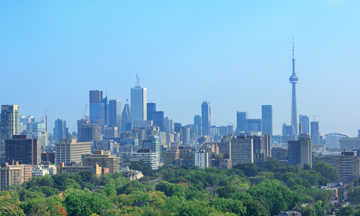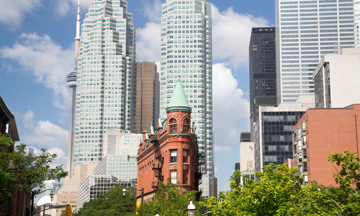The closing or completion day is the day you take legal possession or your new property.
Preparation
As this day nears, we will monitor the progress of your transaction to ensure there are no last minute issues that need to be dealt with.
Closing is the end of the long and complex process of buying a house which is typically anywhere from 30-120 days depending on what’s stipulated in your offer. I can recommend an experienced legal professional if you do not already have one. Your real estate lawyer will be taking on a long list of duties in the process of transferring the property from the seller to you.
Here is what you can expect from your legal professional:
- Reviews the Agreement of Purchase and Sale to make sure all the I’s are dotted and T’s are crossed; makes sure that the seller has made good on all terms outlined in the offer to purchase, and that you have met your legal obligations so that the deal may close.
- Conducts property title search. This is a check of the Land Registry Office records for the current homeowner’s name and what liens, mortgages and easements are registered against the property.
- Title insurance will probably be recommended that you purchase in the event some detail about your property is inaccurate.
- Fire insurance is placed on the house you are buying, at the right time.
- Building and zone compliance search to ensure your new home, including any renovations or additions, is in compliance with local building and zoning codes.
- Ensures utility and property taxes are up to date. If there are arrears these bills will be paid and deducted from what you pay the seller upon closing.
- Reviews the mortgage agreement to ensure that you understand the terms of any mortgage for which you are accepting responsibility.
- Calculate the amount owed for land transfer tax and ensure your money gets into the right hands on time.
Closing Costs
Closing day is the final transfer of money and keys. This is why you need to arrange everything in advance so all that is necessary will be ready on the day of closing. Your lawyer will inform you of the amount you need before the final meeting. Apart from your down payment, it normally involves:
Appraisal Fee
The appraisal provides your lender (bank or mortgage broker) with a professional opinion of the market value of the property. This cost is usually in the $250 range, plus H.S.T.
Fire Insurance
Proof of insurance is required by all mortgage lenders from the time you take possession of the home. The amount of insurance is generally at least the amount of the mortgage or the replacement cost of the home.
Harmonized Sales Tax of 13% (H.S.T.)
For new homes purchased from a builder, HST will be applicable on the purchase price of the home, although new homes purchased as primary residences across all price ranges will qualify for a rebate of up to $24,000 of the 8% provincial component of the H.S.T. Many builders have built the H.S.T. into the purchase price of the home so you don’t have to come up with this amount at closing, but it’s best to verify this beforehand.
Provincial Sales Tax of 8% (P.S.T.)
If your mortgage is CMHC or GE Capital insured (less than 20% down payment), the provincial portion of the H.S.T., formerly known as the P.S.T. and sitting at 8%, is payable at closing, on the CMHC or GE Capital fee. While the insurance premium itself can be added to the mortgage amount, the H.S.T. must be paid at closing.
Land Survey Fee Or Title Insurance Fee
A recent Survey of the property is usually required by the lender, and if one is not available, it normally costs about $1000+ for a new survey. In lieu of the Survey, however, most lenders today will accept Title Insurance, at a much lower price.
Legal Costs and Disbursements
Your lawyer will charge a fee for their professional services involved in drafting the title deed, preparing the mortgage, and conducting the various searches. The fee is generally in the range of $1000 to $2000. The disbursements are out-of-pocket expenses incurred, such as registrations, searches, supplies, etc., plus H.S.T.
Land Transfer Tax
This tax is based on the purchase price of the home. First time home buyers are eligible for significant rebates.
In Ontario, the land transfer tax is calculated as follows:
- Up to $55,000 X 0.5% of total property value,
- From $55,000 to $250,000 X 1% of total property value,
- From $250,000 to $400,000 X 1.5% of total property value,
- From $400,000 up X 2% of total property value.
The City of Toronto levies a matching Land Transfer Tax on Toronto real estate in addition to the provincial rate. To calculate the total tax owing on your home purchase, simply double the figure you calculated above or go my land transfer tax tab.
New Home Warranty
If you are buying new from a builder, the home should be covered by a new home warranty program. The cost to the purchaser for this warranty is approximately $600, and should the builder default or fail to build to an agreed-upon standard, the fund will finish or repair the deficiencies.
Mortgage Application and Processing Fee
On a high-ratio insured mortgage (mortgages above 80% of the purchase price), the mortgage insurer (CMHC or GE Capital) charges a fee for applying and processing the file, as well as appraising the property.
Closing Adjustments
An estimate will be made for closing adjustments for bills that the seller has prepaid such as property taxes, utility bills, and other charges. Any bills after the closing date are your responsibility, and your lawyer will let you know exactly how much you owe once the various searches have been completed.
Closing Day
On completion day itself, legal property ownership is transferred to your name.The mortgage amount is provided to your lawyer by your lender and you will receive a Statement of Adjustments with costs payable, including: balance owing, legal fees, property transfer taxes and other completion costs. Your lawyer will pay the seller, complete necessary documents and register your home at the Land Titles Office in your name.
CONGRATULATIONS!


